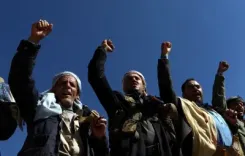Are US Airstrikes in the Caribbean and Pacific Violating International Humanitarian Law?

Synopsis
Key Takeaways
- US airstrikes in the Caribbean and Pacific are questioned for legality.
- Over 60 fatalities reported since early September.
- UN urges cessation of attacks and adherence to humanitarian law.
- Concerns raised about the justification of lethal force.
- Importance of using law enforcement methods for illegal trafficking issues.
United Nations, Nov 8 (NationPress) - The UN Secretary-General, Antonio Guterres, aligns with the UN High Commissioner for Human Rights, Volker Turk, asserting that the US airstrikes in the Caribbean and eastern Pacific breach international humanitarian law, as stated by a UN spokesperson.
During a routine briefing, Farhan Haq, the deputy spokesperson for the UN chief, remarked that "none of the individuals on the targeted vessels seem to pose an imminent danger to others or warrant the use of lethal force under international law," reflecting Turk’s sentiments.
"We aim to ensure that established law enforcement methods are employed to address illegal trafficking issues on the high seas," the spokesperson emphasized.
In a statement on October 31, Turk urged the United States to "cease such assaults and implement all necessary measures to avert extrajudicial killings of individuals aboard these vessels, regardless of the alleged criminal activities against them."
On Thursday, US Secretary of Defence Pete Hegseth announced on X that US forces targeted another suspected drug trafficking vessel in the Caribbean, resulting in the fatalities of three individuals and raising the total number of destroyed vessels to at least 18.
Earlier, UN High Commissioner Turk reiterated the need for the US to halt these operations and take preventive measures against extrajudicial killings aboard these boats, irrespective of the alleged criminal conduct.
The statement further noted that over 60 individuals have reportedly lost their lives in an ongoing series of attacks executed by US armed forces against vessels in the Caribbean and Pacific since early September, in situations that lack justification under international law.









